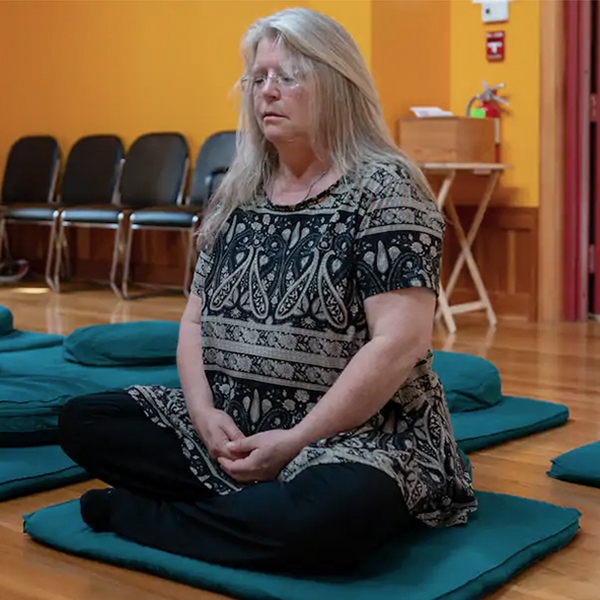
26 May The Story of Susan Saran – Part One of a Three-part Series – Judith Schwarz, PhD and David N. Hoffman, JD
This is the telling of the story of Susan Saran, who fought for her right to determine her death and complete her life on her own terms after a fatal diagnosis of frontotemporal dementia.
The ethical and legal divide between residents at long term care facilities and those who operate them was presented in dramatic detail in a recent article in the Washington Post. It told the story of a woman fighting to direct the end-of-life management of her untreatable and incurable condition – through the execution of a dementia advanced directive.
As the article recounts:
Seven years ago, at age 57, [Susan] Saran was diagnosed with frontotemporal dementia, a progressive, fatal brain disease. She had started forgetting things, losing focus at the job she had held for three decades. Then tests revealed the grim diagnosis. “It was absolutely devastating,” Saran, 63, said. “It changed everything. My job ended. I was put out on disability. I was told to establish myself in an [extended] community before I was unable to care for myself.”
So, Saran uprooted herself. She sold her home in 2015 and found a bucolic retirement community in rural New York whose website promised “comprehensive health care for life.”
And now, she is fighting with that community over her right to determine how she will die — even though she has made her wishes known in writing. Similar fights could ensnare millions of Americans with dementia and similar end-of-life directives in coming years.
The opposing view was presented by Dr. James Wright, medical director of three long-term care (LTC) facilities in Richmond, Virginia:
Critics of such documents, however, say they could lead to forced starvation of incapacitated people. The directives may be biased, reflecting a society prejudiced against age, disability and cognitive change, said James Wright, medical director of three long-term care facilities in Richmond and lead author of a recent white paper advising facilities not to honor dementia directives. Based on his years of clinical experience, Wright said many people with dementia become content with their situation, even when they never thought they would be. “To enforce an advance directive on someone who may have had a complete turnaround on what they think of a life worth living is unethical and immoral,” Wright said.
The position articulated by Dr. Wright is, at its core, an assertion of the right of decisionally incapacitated patients to make choices about their care, and the obligation of caregivers to implement those decisions. The implication of course is that no one is decisionally incapacitated.
To act on the decisions of an incapacitated patient is a form of medical abandonment, which is a form of malpractice. It also ignores the well-established ethical norm that patients are allowed to make decisions when capacitated that are binding on care givers when they become incapacitated. The most obvious and prevalent example of this is a directive by a patient to not be intubated in the event of respiratory distress which, when converted into a medical order by a clinician, becomes what we refer to as a Do Not Intubate (DNI) order.
Wright’s analysis, based on a misreading of federal regulations of adult care facilities, leads to the clinically unsupported conclusion that the Centers for Medicare and Medicaid Services (CMS) do not support the right of patients to direct their care, after they lose capacity, through execution of advance directives. That is false.
Even as the LTC community insists that it cannot, and should not, respect the choices made by patients to be implemented when they become decisionally incapacitated, the industry is perceived as being willing to defer to patient autonomy as a justification for allowing patients/residents to risk life and limb, even when the patient is making objectively poor choices.
This view was recently articulated in a New York Times op-ed piece by Geeta Anand, formerly a reporter for The New York Times, who is now a professor at the University of California, Berkeley, Graduate School of Journalism. In her essay entitled How Not to Grow Old in America, Geeta argues that the assisted living industry is booming by tapping into the fantasy that we can all be self-sufficient until we die.
In her Aug. 29, 2019 commentary, she observes that:
Assisted living seems like the solution to everyone’s worries about old age. It’s built on the dream that we can grow old while being self-reliant and live that way until we die. That all you need is a tiny bit of help. That you would never want to be warehoused in a nursing home with round-the clock caregivers. This is a powerful concept in a country built on independence and self-reliance.
The problem is that for most of us, it’s a lie. And we are all complicit in keeping it alive.
Based on Anand’s observations, perhaps we should call some adult care organizations “monitored living facilities,” rather than “assisted living facilities.”
This post is part one of a three-part series. Stay tuned for part two.


